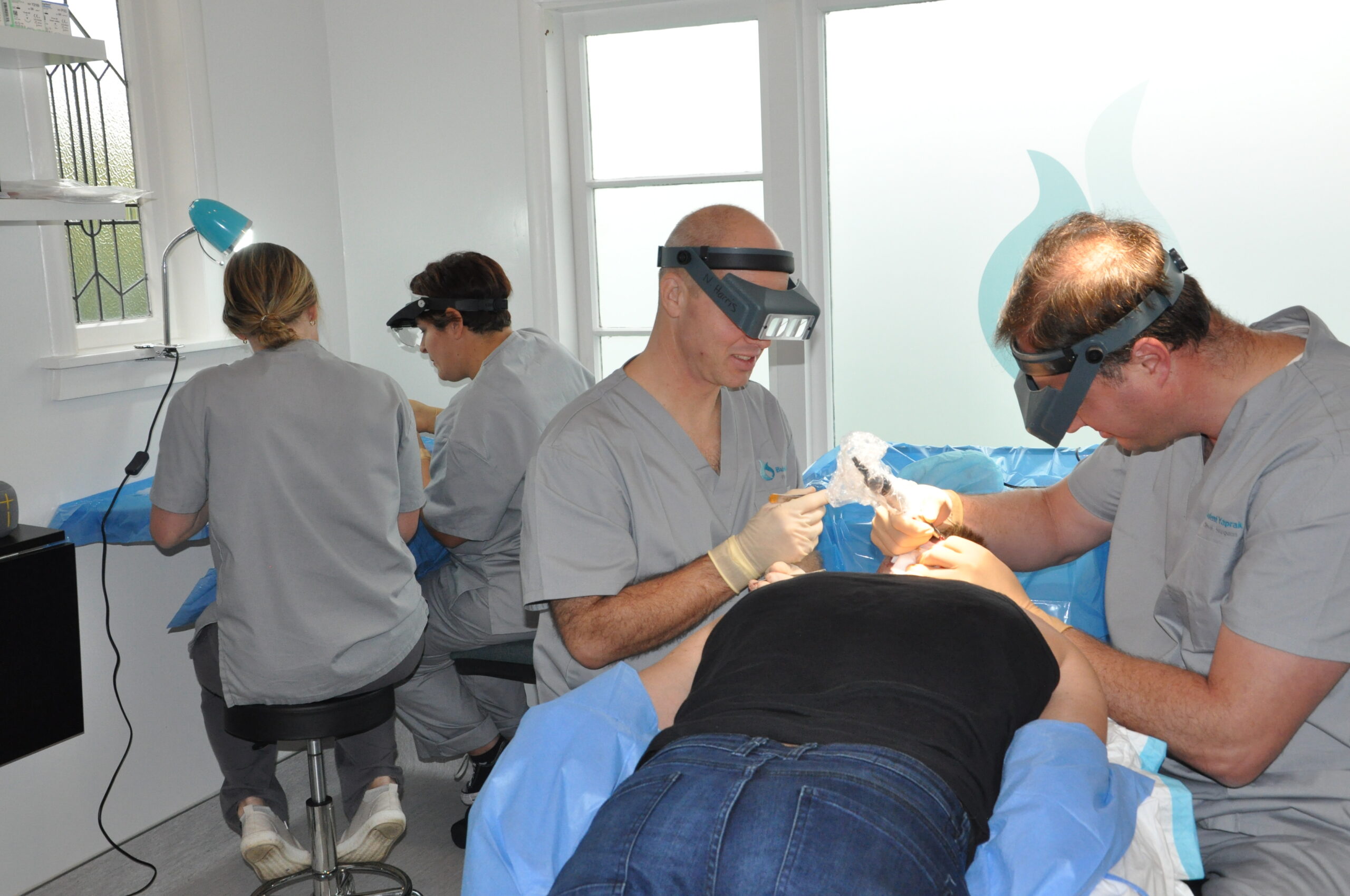FUE Hair Transplantation
The FUE method stands out as the preferred choice for hair transplantation due to its minimally invasive nature, precise follicular extraction, natural-looking results, and minimal scarring, offering patients a comfortable experience with exceptional outcomes.
Seamless Results: The Beauty of FUE Hair Restoration
FUE stands out for its ability to deliver incredibly natural-looking results. This technique involves precise extraction and implantation of individual follicles, seamlessly blending with existing hair for a fuller, thicker appearance and boosted confidence.
Scar-Free Confidence: Why FUE Reigns Supreme
FUE's advantage lies in its ability to achieve remarkable results without leaving visible scars. Unlike strip harvesting, FUE's tiny puncture marks heal quickly and are easily concealed by surrounding hair, providing patients the freedom to wear their hair short or styled without worrying about scars.
Comfort and Convenience: The Ease of FUE Hair Restoration
FUE offers unparalleled comfort and convenience. Administered under local anesthesia, the procedure is virtually painless, with minimal discomfort. With a shorter recovery period compared to traditional methods, FUE restores hair and confidence without hassle, allowing patients to swiftly return to their daily routines.

FUE Hair Transplantation Method
Dr. Bulent Yarpak, a highly respected plastic surgeon with a specialization in hair transplants since 2015, leads New Zealand’s pioneering clinic for the Follicular Unit Extraction (FUE) method. With a profound understanding of plastic surgery and a commitment to innovation, Dr. Yarpak and his team have established themselves as trailblazers in the field of hair restoration.
The Follicular Unit Extraction (FUE) technique represents a significant advancement in hair transplantation procedures. Unlike traditional methods, which often involved the surgical removal of a strip of scalp tissue from the donor area, leaving a noticeable linear scar, FUE is minimally invasive and does not result in visible scarring. Instead, FUE involves the meticulous extraction of individual hair follicles from the donor area, typically located at the back or sides of the scalp, followed by their strategic implantation into the recipient areas affected by hair loss. This precise process ensures a seamless integration of transplanted follicles with the existing hair, resulting in a natural-looking appearance.
Dr. Yarpak’s expertise in plastic surgery, coupled with his dedication to staying at the forefront of technological advancements in the field, has enabled him and his team to refine their techniques and achieve exceptional outcomes with FUE. Their commitment to excellence and patient care is evident in every aspect of the hair transplant journey, from the initial consultation to the post-operative follow-up care.
Beyond its cosmetic benefits, FUE offers patients numerous advantages, including a shorter recovery period, minimal discomfort during the procedure, and the ability to selectively choose specific follicular units for transplantation, enhancing the precision and customization of the treatment. Moreover, FUE’s minimally invasive nature and absence of visible scarring make it an appealing option for individuals seeking effective solutions to hair loss without compromising their appearance or quality of life.
In summary, FUE, led by Dr. Yarpak and his team, represents a groundbreaking approach to hair restoration, combining the latest advancements in technology with the artistry of plastic surgery to deliver natural-looking results with minimal scarring and downtime. As pioneers in the field, Dr. Yarpak and his team are dedicated to providing patients with personalized care and achieving optimal outcomes that restore not only hair but also confidence and self-esteem.

